by Debi G | Dec 2, 2015
FICTION. No one is born with freckles— they’re all the result of sun damage. Freckles come from ultraviolet radiation reacting with melanocytes and causing them to become enlarged and overactive. Over time, this increased melanocyte activity causes the formation of brown spots in adults and “liver spots,” also known as “age spots,” in the elderly.
they’re all the result of sun damage. Freckles come from ultraviolet radiation reacting with melanocytes and causing them to become enlarged and overactive. Over time, this increased melanocyte activity causes the formation of brown spots in adults and “liver spots,” also known as “age spots,” in the elderly.
The rays responsible for freckles are UVA rays, which are commonly referred to as the aging rays (think A for “aging”). They’re the long rays that penetrate deeply into the dermis and cause damage over time. They have the ability to destroy collagen and elastin, causing wrinkles and sagging. While some may have a genetic tendency to form freckles, sun exposure is the key factor that causes them to manifest. That’s why freckles are typically darker in the summer yet may fade almost completely in the winter.
The same process that causes freckles in youth causes age spots in advancing age. The dark spots—most present on sun-exposed areas like the face, arms and back of hands—are simply larger, more prominent versions of freckles. Once discoloration is present, it’s often permanent unless treated, and it will only get darker and more pronounced with continued sun exposure.
To target these signs of premature aging—including freckles, dark spots, discoloration and more—try the REVERSE Regimen. The Regimen exfoliates, lightens, brightens and protects your skin. “Brown spots” typically indicate excessive sun exposure, meaning it’s time you limit your time in the sun and slather on a broad-spectrum sunscreen to protect your skin. Try REVERSE Broad Spectrum SPF 50+, which not only defends against UV rays but also contains SHIELDrf sunscreen technology to fight the signs of photo-aging and licorice and mulberry to help brighten dull skin.
Contact me to find out more information 🙂


by Debi G | Nov 23, 2015
 You may find your skin needs extra attention and moisture during the harsh winter months or in dry climates. Follow the tips below to help promote cell turnover and keep your skin moisturized:
You may find your skin needs extra attention and moisture during the harsh winter months or in dry climates. Follow the tips below to help promote cell turnover and keep your skin moisturized:
Exfoliate to prepare the skin. Proper exfoliation removes the dulling dry skin cells that create a barrier to your moisturizer while helping younger, more vibrant cells rise to the surface. Try ENHANCEMENTS Micro-Dermabrasion Paste, a salt and sugar combination in a high-glide, oil-free formula designed to promote gentle exfoliation for brighter-looking skin. Use the paste intermittently to buff off dead cells and improve skin tone and texture.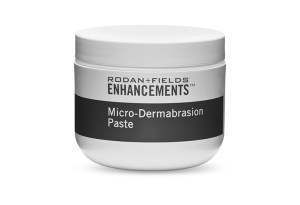
Hydrate skin from the outside in. As the weather gets crisper and drier, you may want to add a more emollient moisturizer to your Regimen, like SOOTHE Moisture Replenishing Cream, along with REDEFINE Multi-Function Eye Cream, to keep skin well hydrated. The humidity levels outside determine how dry your skin is—not how much water you consume—so apply moisturizer if you’re feeling dry. In your home, crank up a humidifier to keep humidity levels at an ideal 50 percent.
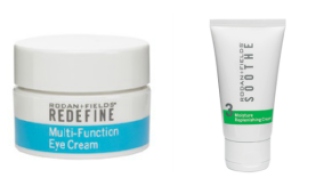
by Debi G | Nov 13, 2015
….it may lead to longer life!
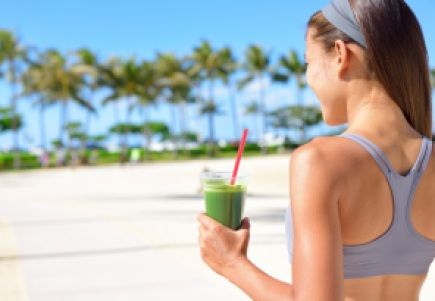
While the “fountain of youth” may continue to remain an elusive concept for most of us, having a youthful attitude might just be the secret to defying aging. As published in the journal JAMA Internal Medicine, scientists from University College London studied the link between self-perceived age and mortality and discovered that people who feel “young at heart” may live longer. Sound too good to be true? The details may surprise you.
Researchers asked a group of participants (averaging 66 years of age) “How old do you feel you are?” and then followed up roughly eight years later to track the subsequent causes of death, such as heart disease and cancer among the group. They found a mortality rate of 18.5 percent for participants who felt close to their actual age and 24.6 percent for those who felt older. Here’s the kicker: Death rates were significantly lower (14.3 percent) for people who had initially reported feeling younger. In addition, people who felt three or more years younger than their age were significantly less likely to die from heart disease compared to those who felt their age or older.
While certain genetic factors may be out of our control when it comes to aging, perhaps there’s some truth to the saying: You’re only as old as you feel. Check out these healthy ways to channel your youthful self and help you feel your best at any age:
Get a full night’s sleep. A complete eight hours allows your body to fully restore itself, leaving you more vibrant physically and mentally.
Eat healthy. In addition to consuming lots of fruits and veggies, make sure you’re getting enough calcium, fiber, potassium, Vitamin A, folic acid, iron and Vitamin D—all key nutrients that many adults are lacking in their diet.
Stay active. Whether you shake a leg to your favorite tunes or take a stroll around the neighborhood, regular exercise is a great way to boost energy, reduce the risk of illness, and even reverse some signs of aging.
Take up an activity you loved as a child. Doing playful things you enjoyed as a kid—like finger painting, puzzles or games—helps you feel more carefree and, in turn, younger.
Keep up appearances. Getting a fresh haircut or using anti-aging skincare products can make you look and feel more youthful. Try REDEFINE ACUTE CARE™ Skincare for Expression Lines for 10 uses over 4 weeks to visibly reduce wrinkles.
Find a purpose. Volunteering is a great way to make a difference at any stage in our lives. Studies of aging adults have shown that people who are more socially connected and give back to their communities also feel younger.


by Debi G | Oct 23, 2015
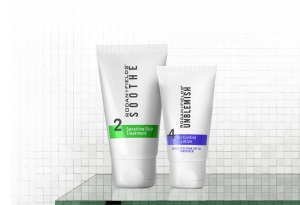
What should I do with my oily skin???
Dr. Katie Rodan: Try the SOOTHE Sensitive Skin Treatment. This lightweight, non-greasy hydrating cream contains exclusive RFp3 peptide technology to help calm sensitive skin and promote smooth, clear, healthy-looking skin. Active skin protectant ingredients dimethicone and allantoin, along with antioxidants and natural lipids, restore the skin’s moisture barrier to relieve dryness, reduce sensitivity and calm irritation. Plus, optical filters immediately neutralize the look of visible redness.
For daytime wear, there’s the UNBLEMISH Oil Control Lotion SPF 20. This lightweight formula helps to control oiliness while protecting against UV rays that intensify post-acne marks and uneven skin tone.
Whatever your skin concern is, we have a solution.
Take the Solution Tool Quiz to see what the Doctors recommend for your skin:

The Solution Tool
If you’re interested in learning more, then message me and I’ll show you how to save money. No pressure, just the facts 🙂

by Debi G | Oct 15, 2015
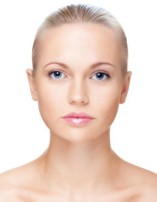 Fiction: Turns out, we all age at different rates. A long-term human health study published in the Proceedings of the National Academy of Sciences measured the aging rate in young people by studying a panel of 18 biological markers—including blood pressure, immune systems and liver function. Based on the biological markers, the researchers then set a “biological age” for each participant. Although each participant was 38 years old, their “biological age” ranged from 30 to nearly 60 based on their biomarkers.
Fiction: Turns out, we all age at different rates. A long-term human health study published in the Proceedings of the National Academy of Sciences measured the aging rate in young people by studying a panel of 18 biological markers—including blood pressure, immune systems and liver function. Based on the biological markers, the researchers then set a “biological age” for each participant. Although each participant was 38 years old, their “biological age” ranged from 30 to nearly 60 based on their biomarkers.
To discover each participant’s aging pace, scientists compared each participant’s results at 38 to the same measurements taken at ages 26 and 32, and they found that most participants aged one year per chronological year. However, some aged up to three years per year, while others aged at zero years per year—meaning they actually remained younger than their age.
Thankfully, the aging process isn’t all about genetics. Studies have proven that, though 20 percent can be attributed to good genes, the rest has to do with environmental causes, like exposure to the sun’s UV rays. And that’s good news for our skin. The choices we make—whether it’s staying out of the sun or using effective broad spectrum sunscreen formulas, such as REDEFINE Triple Defense Treatment and REVERSE Broad Spectrum SPF 50+ Sunscreen—can visibly improve how your skin ages.
Protecting yourself is easier than ever before!
Send me a message…let’s get you started today!


 they’re all the result of sun damage. Freckles come from ultraviolet radiation reacting with melanocytes and causing them to become enlarged and overactive. Over time, this increased melanocyte activity causes the formation of brown spots in adults and “liver spots,” also known as “age spots,” in the elderly.
they’re all the result of sun damage. Freckles come from ultraviolet radiation reacting with melanocytes and causing them to become enlarged and overactive. Over time, this increased melanocyte activity causes the formation of brown spots in adults and “liver spots,” also known as “age spots,” in the elderly.
 You may find your skin needs extra attention and moisture during the harsh winter months or in dry climates. Follow the tips below to help promote cell turnover and keep your skin moisturized:
You may find your skin needs extra attention and moisture during the harsh winter months or in dry climates. Follow the tips below to help promote cell turnover and keep your skin moisturized:







